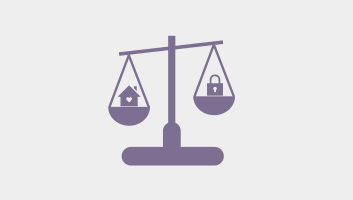How is landlord insurance calculated?

How is landlord insurance calculated?
All insurance companies have underwriters who assess the statistical risk of you making a claim. Landlord insurance is calculated by the underwriters, based on the specific level of risk that your property presents. There are various factors that influence underwriters when they are calculating the cost of insurance. Here are some of the influences that impact an insurer when deciding on how to calculate your premium.
Risks specific to your property
Underwriters will typically begin by assessing the risks specific to your property. These are likely to include, for example the property is located, the type of property, the age of your property, and even the security features of the property. All of these can have an impact on your likelihood to make a claim, for example some postcodes have higher crime rates than others.
The specialism of the insurance company
Underwriters can have specialist knowledge about particular risk. Some niche insurers may, for example, have a thorough understanding the risk of new landlords present. Another might understand the risk of living in Central London. Not all underwriters calculate risk in the same way. Nor do they have the same pricing mod el, insurance premium costs can vary significantly. Just because landlord insurance is expensive with one insurer, it doesn't mean it will be with another.
Rebuild value or standard coverage buildings insurance?
Some insurance is a calculated on the rebuild value of the property, which can impact on the cost of premiums. There are more insurance products that have a minimum rebuild level, which is sufficient to cover most residential buildings in the UK.
Are you a risk to insure?
After assessing the risks involved with your property they may look at the risks that you present yourself. No claims bonus can have an important impact on calculating the cost of landlord insurance. As demonstrated, underwriters are looking closely at the likelihood of a claim. There is no other single factor that will demonstrate you as low risk as this! This can result in premiums as much as 30% lower!
Are your tenants a risk to insure?
It is difficult to find out too much about your tenants without being intrusive, but you will be asked to disclose some information. An insurer is likely to ask as a minimum the type of tenant you let to. This is because, for example, an airbnb property will have different risks to a long term professional tenant.
The levels of excess you are willing to accept
Underwriters will also look at the level of excess that you will pay, and this can also have an impact on your premium. For example if an owner willing to pay £500 every time you make a claim, it may reduce the premium, compared to a proprietor willing to pay £100 to claim.
What level of coverage do you need?
Level of coverage you want is considered by underwriters when they decide the premiums. Landlord insurance combines coverage for buildings, contents, liability and more. Whether a proprietor wants all types of coverage can impact the cost.
Then the values associated with each type of insurance will change the cost of the premium. Full contents worth £50,000 will be more expensive than an unfurnished flat.
Do you want to purchase more than one insurance product simultaneously.
Package products offer great savings for landlords who want multiple insurance policies. This is particularly beneficial for commercial landlords with multiple properties or blocks
It is not essential to have a full knowledge of how the insurance is calculated, but it is essential that you have insurance that meets your needs. To find the best landlord insurance from just £79 please contact us today.
FREQUENTLY ASKED QUESTIONS
Advice and information about landlords insurance

What type of landlords insurance do I need for a flat?

How do I get the cheapest landlord insurance?

How can I find the best landlord insurance?

How much landlords insurance do i need?

How much is Landlord insurance for a flat?

How much does landlord insurance cost?

How is landlord insurance calculated?

How important is landlord insurance?

How does landlord insurance work?

How do i find specialist landlord insurance?


